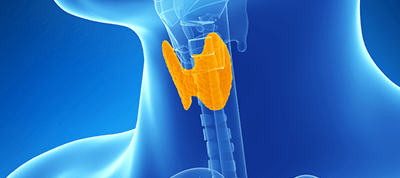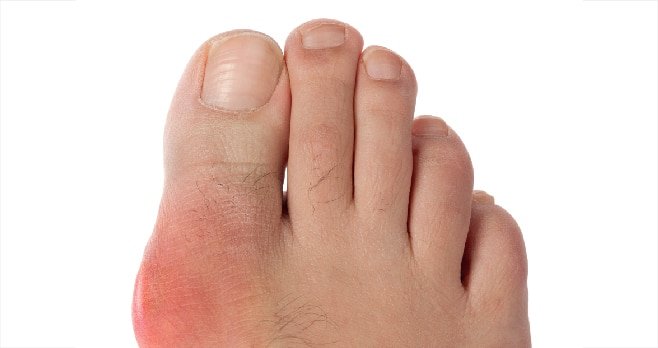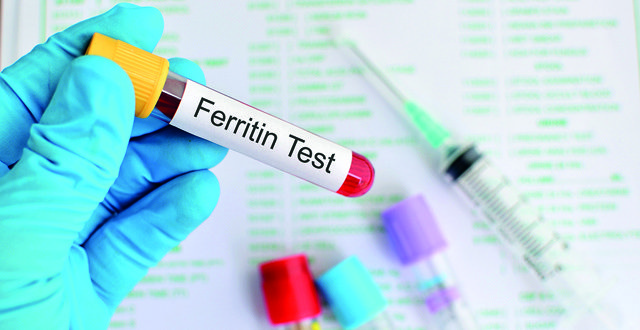Dr Gregory Pastores discusses potential endocrinologic issues in adult metabolic disorder patients
Inborn errors of metabolism (IEM) are generally recessively inherited diseases, which are rare to infrequent and usually result from deficiency of an enzyme or transport protein responsible for the handling or processing of molecules essential for maintaining cellular homeostasis. A significant proportion of affected individual present in childhood, and for at least six conditions diagnosis is established in Ireland through new-born screening (specifically, for PKU, homocystinuria, galactosaemia, MCAD and GA type 1; the last two added to the panel in 2019). Less frequently, diagnosis is made later (in teenage or adult years), particularly among those without a family history or those who have an attenuated, delayed-onset form of the condition (usually associated with residual enzyme or transport protein function). Certain IEMs may lead to adverse consequences and can impact on growth, bone health and fertility. With increased survival into adolescence and adulthood, endocrine problems may be encountered among patients with an IEM, and for certain conditions screening is often included in surveillance or as part of anticipatory guidance for cases diagnosed in childhood.
Endocrinologic problems associated with an IEM are usually seen in the context of a multisystemic disorder; which can any combination of neuro-muscular or hepatic, and/or renal dysfunction. The most commonly encountered problems include diabetes mellitus (DM), thyroid dysfunction, hypogonadism and osteopaenia. Underlying metabolic conditions in these patients include those that can cause energy deficiency [respiratory chain (RC)/mitochondrial dysfunction], defects of metal metabolism (haemochromatosis) and storage disorders (cystinosis).
Several pathologic processes have been implicated, including:
(1) Disruption of glandular structure through progressive accumulation of toxic substances-such as iron in haemochromatosis, cystine (cystinosis) or complex molecules.
(2) A disturbance in metabolism that interferes with the availability of energy required for hormone synthesis (as in RC disorders) or hormone release (as in underproduction of insulin-causing diabetes in Rogers syndrome); or
(3) Impairment of hormone biosynthesis in organelles or hormone transport into the target organ, as in cerebral monocarboxylate 8 (MCT8) defect, in which the thyroid hormone cannot cross the blood brain barrier. [Rogers syndrome: Thiamine-responsive megaloblastic anaemia (normal vitamin B12/folic acid levels), hearing loss caused by autosomal recessive mutations of SLC19A2 gene, encoding thiamine transporter protein responsible for the utilisation of thiamine molecules in various tissues including the pancreatic beta cells; MCT8 deficiency: X-linked severe neurodevelopmental deficits (in males only), high serum T3, low rT3, low normal to reduced T4, and normal or slightly elevated TSH (Allan-Herndon-Dudley syndrome)].
Differential diagnosis
Although infrequent to rare, particularly among adults, IEM must be included in the differential diagnosis of patients presenting with non-autoimmune DM, thyroid dysfunction and/or goitre, and sometimes hypoparathyroidism, after other more common aetiologies have been ruled out. Associated clinical manifestations may provide a clue to the IEM cause; eg, diabetes and hearing loss (mitochondrial dysfunction), primary hypogonadism and type 2 diabetes in Alström disease and cystinosis (associated with thyroid dysfunction). [Alström syndrome is a rare autosomal recessive (AR) disorder grouped with the ciliopathies; associated with defects in ciliary structure and function. Main clinical features: Photoreceptor dystrophy, sensorineural hearing loss, dilated cardiomyopathy, truncal obesity, in addition to type 2 diabetes.]
Among the growing list of mitochondrial disorders, a condition of relevant interest: classical Wolfram syndrome, an AR disorder caused by mutations in WFS1, a gene implicated in endoplasmic reticulum and mitochondrial function. Affected individuals develop insulin-requiring diabetes and optic atrophy. A constellation of other features contributes to the acronym DIDMOAD (Diabetes Insipidus, Diabetes Mellitus, Optic Atrophy, and Deafness).
In addition, primary hypogonadism is encountered in females with galactosaemia; hypogonadotropic hypogonadism is seen in haemochromatosis, often associated with diabetes. Hypogonadism is also frequent in X-linked adrenoleukodystrophy (associated with adrenal failure), congenital disorders of glycosylation, and glycogen storage disease (hepatic dysfunction).
Research
There have been limited systematic studies of endocrinologic problems in adulthood within an IEM. Several cases reports and a few cohort studies have highlighted consequences on growth, bone metabolism and fertility. Pregnancy can also be associated with certain risks to an affected woman and her unborn child, which will require close monitoring. There has been a lot of recent interest in bone health; with studies undertaken in patients with Pompe disease and Gaucher disease showing a significant proportion of patients have osteopaenia associated with an increased fracture risk. Both Pompe and Gaucher disease are lysosomal storage disorders associated with an underlying enzyme deficiency, and currently treatable with infusion of the relevant recombinant enzyme formulation. Importantly, for other IEMs associated with metabolic decompensation extra calories are often prescribed during periods of illness to drive anabolic pathways. In some of these cases, overweight/obesity is presenting a particular challenge.
Management
In relation to management, the NCIM-Adult services (based at the Mater Hospital, Dublin) focus on patients with IEM that can be effectively managed by dietary restriction and/or the use of supplements or their care falls under the expertise of metabolically-trained staff (biochemical geneticists or chemical pathologists whose training has encompassed additional experience managing adult patients with metabolic disease, offered at limited sites: eg, Salford Mark Holland Unit, Manchester). These would include individuals with (see Table 1) Galactosaemia and Glycogen storage disease (GSD).
Patients with hereditary hemochromatosis and cystinosis would be offered care by centres or teams with specialist expertise or interest based on major organ pathology. For instance, Tallaght Hospital has set up a haemochromatosis Clinic (2010) that is a nurse-led clinic under the care of Consultant Hepatologist and Gastroenterologist Dr Niall Breslin.
In some cases, information can be gleaned from patient support groups: eg, Cystinosis Ireland, founded in 2003 by those living with cystinosis and their families. Incidentally, although Cystinosis is a lysosomal storage disorder (LSD) affected individuals are under the care of nephrologist; given renal failure is a major complication.
Patients with other LSDs, although not specially managed by dietary manipulation are seen by the NCIM-adult services. Affected individuals with LSDs do not usually develop primary endocrinologic problems, which is not to state they may not have acquired conditions; but clinical expertise for their multidisciplinary care is often coordinated by metabolic specialist, in conjunction with other relevant specialties: eg, Fabry disease (renal failure, cardiomyopathy, arrhythmias), Gaucher disease (anaemia, multiple myeloma, Parkinson disease), late-onset Pompe disease (myopathy, pulmonary insufficiency). Enzyme replacement therapy is available for these LSDs and a few others, and current models of care require a determination to high cost treatment.
Trials and unmet needs
The NCIM-Adult services keeps abreast of new advances and options to participate in clinical trials: eg, in Fabry disease, an oral pharmacologic chaperone has recently become available; for X-linked adrenoleukodystrophy, there has been an opportunity to enrol a limited number of affected males in an ongoing trial with an experimental drug – Min-102, an orally bioavailable and selective PPAR gamma agonist, working with teams in Paris and Amsterdam.
One unmet need is care for patients with a mitochondrial disorder. In the UK, NHS highly specialised services (HSS) have been established for rare mitochondrial disorders through programmes based in London, Newcastle and Oxford. Currently, the NCIM-adult services have several patients with mitochondrial disorders, mainly MELAS referred by the neurology or endocrinology team. For these patients, the Mater Hospital Unit has set up cascade screening and monitoring of patients and relatives at risk for complications. Ultimately, there will be a need for a dedicated unit to manage the multidisciplinary care of patients and hopefully limit the need for cross-border care.










Leave a Reply
You must be logged in to post a comment.